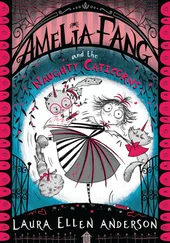Laura Schlitz - Splendors and Glooms
Здесь есть возможность читать онлайн «Laura Schlitz - Splendors and Glooms» весь текст электронной книги совершенно бесплатно (целиком полную версию без сокращений). В некоторых случаях можно слушать аудио, скачать через торрент в формате fb2 и присутствует краткое содержание. Год выпуска: 2012, ISBN: 2012, Издательство: Candlewick Press, Жанр: Старинная литература, на английском языке. Описание произведения, (предисловие) а так же отзывы посетителей доступны на портале библиотеки ЛибКат.
- Название:Splendors and Glooms
- Автор:
- Издательство:Candlewick Press
- Жанр:
- Год:2012
- ISBN:978-0-7636-6246-2
- Рейтинг книги:5 / 5. Голосов: 1
-
Избранное:Добавить в избранное
- Отзывы:
-
Ваша оценка:
- 100
- 1
- 2
- 3
- 4
- 5
Splendors and Glooms: краткое содержание, описание и аннотация
Предлагаем к чтению аннотацию, описание, краткое содержание или предисловие (зависит от того, что написал сам автор книги «Splendors and Glooms»). Если вы не нашли необходимую информацию о книге — напишите в комментариях, мы постараемся отыскать её.
Splendors and Glooms — читать онлайн бесплатно полную книгу (весь текст) целиком
Ниже представлен текст книги, разбитый по страницам. Система сохранения места последней прочитанной страницы, позволяет с удобством читать онлайн бесплатно книгу «Splendors and Glooms», без необходимости каждый раз заново искать на чём Вы остановились. Поставьте закладку, и сможете в любой момент перейти на страницу, на которой закончили чтение.
Интервал:
Закладка:
“A wishing stone! How those words excited me! I thought of all the things I wished for: that my mother might return; that my father might love me; that I might shrink and become delicate and fairylike, as Marguerite was. I wanted to marry a nobleman; I wanted to live in a palazzo. . . . But of course I confided none of these things to Marguerite. I changed the subject and we talked about the party. Then Marguerite fell asleep — she could fall asleep quite suddenly and deeply, like a child — and I slid out from under the blankets and crept to the trunk at the foot of her bed.
“The moon was full that night. When I opened the trunk, I could see the pale color of Marguerite’s birthday shawl. Underneath was the pasteboard carton. A subtle warmth seemed to come from it. I opened it and found the stone. I gripped it in my fist and wished that my father would remember my birthday. I think when I opened the trunk, I meant only to wish on the stone, not to take it. But of course I did take it. That night I hid it under my mattress. The next day, I sewed a tiny pocket for it in the bodice of my chemise. I wore it there like a second heart — hotter and stronger than my own.
“My father’s birthday parcel arrived within the week. It contained a workbox for my sewing — I detested sewing — and a book of essays, entitled Christian Thoughts. I looked for a letter, but there was only a single sheet of paper with the hastily scrawled inscription: To Cassandra, for her twelfth birthday. I read it and began to cry. There was nothing in the parcel that showed that my father had any acquaintance with me. He had forgotten my age, he had given me the kind of book I most disliked, and his letter could not have been less affectionate. Since that day, I have had better reasons to weep. I have known betrayal; I have known cruelty. But nothing has broken my heart more than the package my father sent for my thirteenth birthday.
“It was nine weeks before Marguerite found out that something was missing from her trunk. She was perfectly bewildered, because only the six of us — her dearest friends — had seen the necklace. No thief had broken into the convent. Her precious pearls were untouched. But her mother’s favorite necklace was missing, and that meant that one of her friends had betrayed her. Of course we were searched — our trunks, our cubicles. Sister Beata took me into an empty room and told me to remove my clothes.
“I was horribly embarrassed. I was ashamed of my figure, which was too well developed for a girl my age. I pressed my hand against my second heart and wished that I might be spared the search. I shall never forget the queer look that came over Sister Beata’s face. ‘Of course it was not you,’ she said. ‘You are Marguerite’s dearest friend. You have said that you are innocent and I believe you. You may return to your room.’
“So my secret was never discovered. As for Marguerite, she was heartbroken. One of her dearest friends had proved an enemy, and she didn’t know which one. ‘The only thing I know for certain,’ she used to say, ‘is that it wasn’t you.’ I couldn’t imagine how she could be so stupid. Had she forgotten the night of her birthday, when she told me it was a wishing stone? Why didn’t she remember? I think perhaps it was sheer obstinacy. She was determined to trust me in the very teeth of the evidence. Indeed, she treated me with greater affection than before. Sometimes when she brushed my hair, I had to leave the room, so that I could be sick — but I couldn’t vomit up the lie. There were times when I almost confessed — except I knew that if I told the truth, I would have to give back the stone. I couldn’t give it up.
“So I kept my secret, and in time Marguerite went back to New France. For years she wrote to me. I never answered. Before she died, she sent me the little portrait that you found in the library. In remembrance. She wrote that on the back. I’ve wondered what she meant by it. Perhaps, years later, she came to understand that I was the thief; perhaps she wanted to remind me how I’d wronged her. Or perhaps it was a token of forgiveness. I’ll never know. That she should hate me, that she should forgive me: either one is a torment. For seventy years, she has haunted me.”
“You loved her,” said Lizzie Rose.
“Did I?” asked Cassandra. “I don’t know. She loved me. She was the last person who ever loved me. I never had another friend. I had admirers, of course; with the power of the fire opal, I could make men fawn on me. But their affection was neither lasting nor true, and I quickly tired of them. It’s queer, isn’t it? When I look back over my long life, there were only two people who mattered. One was Gaspare and the other was Marguerite. He betrayed me and I betrayed her.” She moved restlessly. “You look as if you pity me. Don’t. Remember, I brought you to Strachan’s Ghyll to steal the fire opal. Any of you might have inherited its curse: you, or your brother, or Clara, if she hadn’t been so strong. I knew what I was passing on. A wasted life, a fiery death. I didn’t care. I’m telling you the truth: I didn’t care. ”
Cassandra’s voice did not falter. She risked a glance at Lizzie Rose and read the shock in the young girl’s eyes. Cassandra twisted away from her, dragging the bedclothes over her shoulder to signal that she was too tired to talk anymore.
Ruby gave a little grunt of irritation. She got up, stretched, and made her way to Cassandra’s pillow. Carefully, systematically, she began to lick the tears from the witch’s face.

When Parsefall opened his eyes, he was in Madama’s room. He sat up and used his fingernails to scrape the grit from his eyelids. Then he kicked off the blankets and reached for his clothes, only to recall that he had left them in the White Room.
A ray of sunshine streamed through the crimson curtains. It was full daylight. Lizzie Rose was not there, and neither was Ruby; they must have gone for their morning walk. Parsefall wondered why none of the servants had come in with breakfast. At the thought, his stomach growled, and he got to his feet.
He had forgotten Clara. She was asleep in the chair, curled as tight as a fist. To an adult, she might have appeared small. To her former puppet master, she looked enormous. Parsefall felt a pang of regret. She was no longer his. He recalled the thrill of making her dance and the queer un-loneliness he felt when he cradled her in his lap. Now she was separate from him, a thing he had lost.
She stirred and her eyes opened. One cheek was red from the arm of the chair. “Is there any hot water?”
Parsefall shrugged. He had a vague knowledge that the servants at Strachan’s Ghyll brought water for washing every morning, but the matter had never much interested him. It occurred to him that Clara was probably going to be like Lizzie Rose, always wanting to clean herself. She tiptoed to the washstand, dipped her fingers into the water pitcher, and frowned. Then she came back and picked up her slippers. He followed her into the hallway.
She spoke in a low voice. “I’m hungry. Do you suppose there’ll be anything to eat?”
“There usually is,” Parsefall said. He sniffed hopefully, but he lacked Lizzie Rose’s acute sense of smell, and he could pick up no scent of bacon or frying ham. “Let’s go and see.”
They fell into step. When they came to the staircase, Clara sat down on the top stair to put on her slippers. It reminded Parsefall that he was still in his nightshirt. “Wait ’ere,” he directed her, and went back to the White Room to change. He threw on his clothes, shoved his feet into his boots, and clomped back down the hall to Clara.
Читать дальшеИнтервал:
Закладка:
Похожие книги на «Splendors and Glooms»
Представляем Вашему вниманию похожие книги на «Splendors and Glooms» списком для выбора. Мы отобрали схожую по названию и смыслу литературу в надежде предоставить читателям больше вариантов отыскать новые, интересные, ещё непрочитанные произведения.
Обсуждение, отзывы о книге «Splendors and Glooms» и просто собственные мнения читателей. Оставьте ваши комментарии, напишите, что Вы думаете о произведении, его смысле или главных героях. Укажите что конкретно понравилось, а что нет, и почему Вы так считаете.










